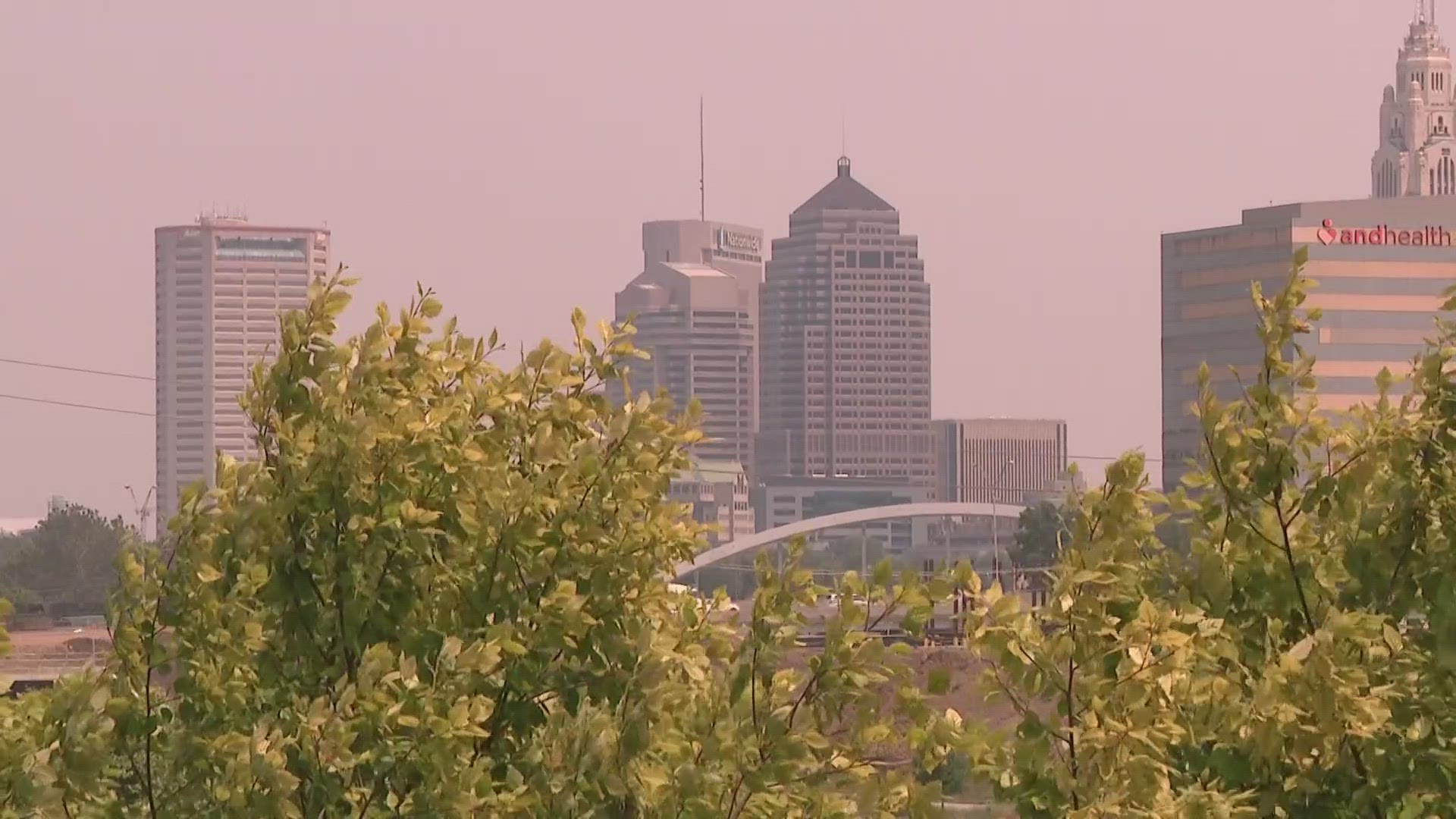COLUMBUS, Ohio — Melissa Jenkins was looking forward to getting outside with her kids with the cooler temperatures, until she saw a hazy sky over the city.
"I am a little concerned,” she said. “I think it's just more confusing because I'm not sure what's going on with the kids.”
She's not sure if they are coughing more now due to the smoke -- or allergies -- or a combo of both.
Dr. Mitchell Grayson is the Chief of the Division of Allergy Immunology at Nationwide Children's Hospital and said it can be a combination of both.
He added infants and small toddlers are most sensitive to this wildfire smoke. Parents and caregivers will want to take precautions -- depending on the level of the air quality alert.
"If it's in the yellow to orange, we're probably talking you don't want them out there running around for hours kind of things. But that less than an hour is going to be fine. If it's in the yellow, they're probably fine doing their normal activities. If they don't have as if they have asthma. The key thing is to make sure that their asthma is as well controlled as possible,” he said.
The elderly are also at risk -- and people with underlying medical conditions.
We spoke to a pulmonary critical care physician who says this time of year is already bad for people who struggle with allergies -- and now this wildfire smoke is adding to respiratory issues.
"Levels above 150 have been associated with causing symptoms in people even without respiratory conditions. Really when you start hearing numbers above 150 do what you can to stay inside if it's not absolutely necessary to be inside,” said Dr. Tyler Anderson, a pulmonary critical care physician with OhioHealth.
If you want to check your air quality in real time, you can do so here.
It updates every 10 minutes.
Air quality is something moms like Melissa Jenkins will be paying closer attention to, now that she also thinks she's feeling effects from it, too.
“I could tell something this morning,” she said about her morning run. “Especially with the bright orange sunrise.”
Doctors said to watch for symptoms like wheezing and trouble breathing -- or increased fatigue for kids. Those could all be symptoms to watch for to seek medical help.

